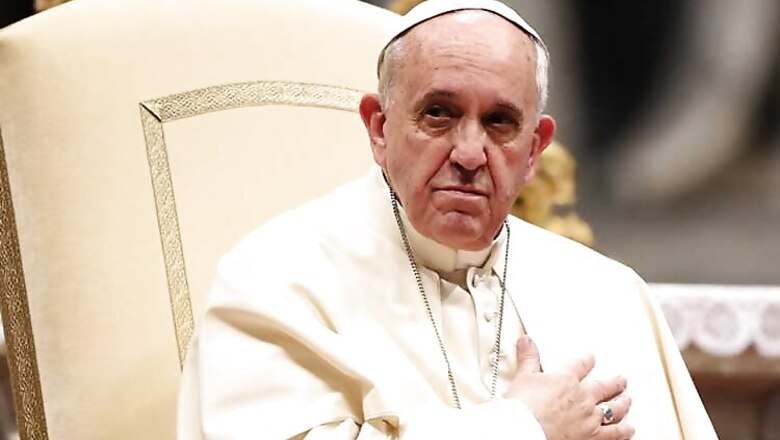
views
Vatican city: Pope Francis will give all priests discretion to formally forgive women who have had abortions during the Roman Catholic Church's upcoming Holy Year, in the Argentine pontiff's latest move towards a more open and inclusive church.
In Church teaching, abortion is such a grave sin that those who procure or perform it incur an automatic excommunication. Usually only designated clergy and missionaries can formally forgive abortions.
But from December 8 to November 26, during an extraordinary Holy Year or "Jubilee" on the theme of mercy announced by Pope Francis in March, all priests will be able to do so, he said in a letter published on Tuesday by the Vatican.
In the letter, Francis described the "existential and moral ordeal" faced by women who have terminated pregnancies and said he had "met so many women who bear in their heart the scar of this agonizing and painful decision".
Francis is the first non-European pope in 1,300 years and has also marked himself out for his tolerance regarding taboo topics. In a remark that has become emblematic of his papacy, he asked "who am I to judge?" with regard to a gay person who seeks God.
He has shown no intention of retracting the Church's opposition to abortion, but has alarmed conservatives by taking a less forceful tone on the issue than his predecessors.
"This is by no means an attempt to minimize the gravity of this sin but to widen the possibility of showing mercy," Vatican chief spokesman Father Federico Lombardi told reporters.
Deputy Vatican spokesman Father Ciro Benedettini said that "for now" the change would apply only during the Holy Year.
Usually only a bishop, missionary or the chief confessor of a diocese, known by the Italian term "penitenziere", can formally forgive an abortion, Benedettini said.
The pope's letter did not mention people who perform abortions.
The Holy Year is one of the 1.2 billion-member church's most important events, and sees faithful make pilgrimages to Rome and other religious sites around the world.
The event usually takes place every 25 years unless a pope decrees an extraordinary one to bring attention to a particular topic or need. It will be the 29th Holy Year in the 700-year history of the tradition.
















Comments
0 comment